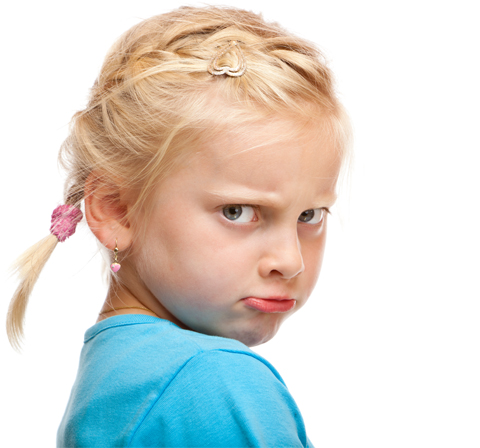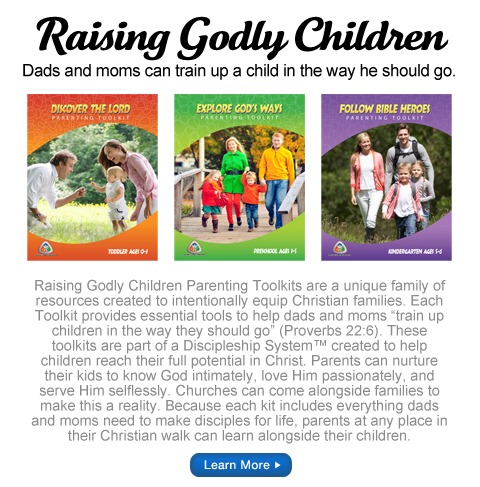Helping Families Deal With Anger: A Biblical Perspective
By Sudi Kate Gliebe
In this article, Sudi Kate Gliebe from Southwestern Baptist Theological Seminary provides biblical strategies and tools for helping families and children who struggle with anger (get entire article as PDF download below).
Summary
The spiritual effects of anger in families are devastating. However, the Bible offers hope; it provides guidance on how to deal with anger constructively. This article will address the dynamics of angry families and the crucial role of parents. It will explore the contemplative method and its potential to provide biblical guidance and restoration to angry children. Specifically, the article proposes meditation and journaling as viable solutions to help children with habitual anger.
Outline
- Introduction
- A Biblical Understanding of Anger
- Characteristics of Anger
- Diagnostic Questions
- Angry Families
- A Close Look at Ephesians 6:4
- Lack of Marital Harmony
- Modeling Sinful Anger
- Habitually Disciplining in Anger
- Practicing Favoritism and Comparisons
- Helping Children Deal with Anger
- Introducing a Contemplative Approach
- Characteristics of a Contemplative Model
- Meditation (God’s Word)
- Journaling (Spiritual Discipline)
- The Anger Journal
- Ministry Implications
- Conclusions
Excerpt from the “Angry Families” Section
Theologian Richard Baxter (1615–1691) (2008) once wrote, “Anger is a sin that does not leave you to sin alone. It stirs up others to do the same. Wrath kindles wrath, as fire kindles fire” (p. 16). Nowhere is this statement truer than in the context of family relationships. Angry children do not emerge out of a vacuum. They become angry within a context, an environment that breeds anger. Pediatrician Tim Murphy (2001) calls it “homegrown anger.” He identifies four kinds of families where anger becomes a way of life.
- First, there is the troubled family, where anger is the voice of pain. These families experience devastating loss, mental illness, severe financial woes, and marital discord. These families use anger as a way to lash out and relieve the pain that has invaded their lives (Murphy, 2001). This type of family might include families who are experiencing divorce, children whose parents struggle with addiction, and children who have suffered abuse and trauma. These broad and complex topics are beyond the scope of this article.
- Second, there is the frantic family, where anger is the voice of stress. These families are overscheduled, overwhelmed, and under enormous pressure. Their busy schedules along with lack of rest and meaningful conversation turn family members into strangers. Poor communication styles and destructive ways of dealing with conflict are common for these families (Murphy, 2001).
- Third, there is the angry family, where anger is the voice of power. These families use anger and rage to control, intimidate, and manipulate other family members. Children in this type of family learn to read their parents’ moods and live in fear. Unfortunately they also learn to use anger as a powerful means to get results (Murphy, 2001).
- Fourth, there is the indulging family, where anger is the voice of desire. Children are pampered and spoiled in this type of family. Over time, children learn that anger is a powerful tool that gets them everything they want (Murphy, 2001). Indulging families are child centered, where “children believe and are allowed to behave as though the entire household exists to please him” (Priolo, 1997, p. 24).
Researchers believe that angry families mentioned above produce children who tend to be aggressive and non-compliant (Fanning, Landis, McKay, & Paleg, 1996). These children are also less empathetic and have poor overall adjustment. They are often afraid to try new things, might be abusive with younger siblings, and show signs of depression and lethargy (Fanning et al., 1996). The above family patterns are destructive and they confirm that anger does not work. On the contrary, anger triggers more anger, it frightens children, and it is punitive and therefore detrimental. Helping parents to understand their own anger biblically is the best and first way to help children handle theirs (download complete article PDF).
––––
About Sudi Kate Gliebe
Sudi Kate Gliebe is a doctoral student in Childhood Education and Foundations of Education at Southwestern Baptist Theological Seminary where she also completed the Masters in Christian Education. Her areas of interest include the spiritual, emotional, and social development of young children
Helping Families Deal with Anger: A Biblical Perspective taken from the Christian Education Journal, CEJ: Series 3, Vol. 9, No. 1 Copyright 2012; p 65-80.
All rights reserved. Permission granted by Christian Education Journal.
Want to share this article outside of your ministry? Want to post this electronically? Please contact Dr. Kevin Lawson: Editor.cej@biola.edu
Subscribe to Christian Education Journal: cej.subscriptions@biola.edu
__
Discipleship Begins With Our Children
Children need meaningful, shared-life relationships. That’s the heart of discipleship. DiscipleLand’s family of Biblical resources forms a complete Children’s Discipleship System™ – an intentional, relational, and transformational process designed to help children know God intimately, love Him passionately, and to serve Him selflessly. Click here for your Free Catalog
Learn more by clicking on the following:
• Samples
• Nursery and Toddler
• Preschool
• Kindergarten
• Elementary
• Kids Church
• Midweek
• Free Catalog







No Responses